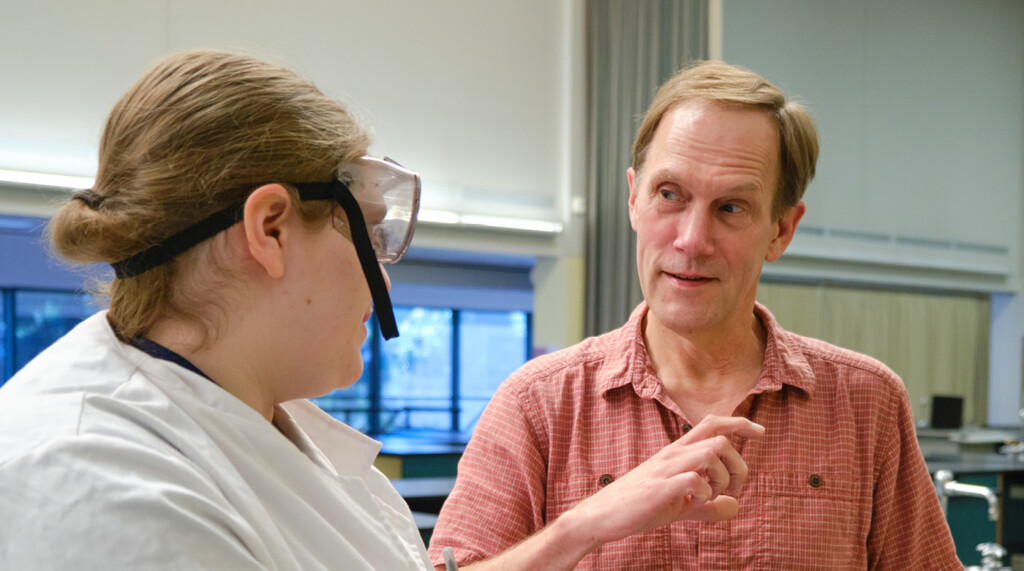Page 21 • (1,359 results in 0.043 seconds)
-
2024 Chemistry Capstone SymposiumAll talks will be held in Rieke Science Center, Room 222. Talks are anticipated to be approximately 25 minutes long including time for questions. The schedule of talks is given below. View by Day: [ April 22nd | April 29th | May 6th | May 10th | May 13th ]Monday, April 22, 2024 (Rieke 222) 12:30-1:00 pm Solventless, Microwave-Assisted Synthesis of Photoluminescent Carbostyril Compounds with Iodine Catalysis for Probe Detection Audrey Borloz, Senior Capstone
-
: biology & microbiology, organic & inorganic chemistry, epidemiology, biostatistics, and environmental health topics. Be a student member of WSEHA or become a member upon receipt of the scholarship. (Click here to access the WSEHA Membership Application.) Demonstrate his/her intent to become employed in the field of environmental health in Washington following graduation. Be willing to submit a photograph if awarded the scholarship. Intend to attend the WSEHA Annual Educational Conference to receive
-
Research in Interdisciplinary STEM Education (RISE) Posted by: nicolacs / January 10, 2022 January 10, 2022 Research in Interdisciplinary STEM Education (RISE) is a 9-week residential summer research experience for undergraduate students in chemistry, education, life sciences, mathematics, or physics. Participants will join interdisciplinary teams mentored by faculty to investigate STEM learning across formal and informal environments with a focus on understanding issues related to inclusivity
-
renowned DOE national laboratory scientist and other faculty and students. Some of the exciting research areas include: AI for chemistry and materials Science, computer science, and math for quantum computing Acceleration and predictions for climate change Ice sheet modeling Deep phylogeny Gravitationally Lensed Supernovae Multiphysics modeling and simulation Distributed performance analysis and optimization Hardware architectures and accelerators Cybersecurity for high performance computing Machine
-
UO Masters’ Internship program in Electrochemistry Posted by: nicolacs / November 18, 2021 November 18, 2021 The Oregon Center for Electrochemistry’s masters-level internship program attracts chemistry, physics, biology, and engineering students and provide nationally unique training including rigorous foundational electrochemical theory, team- and inquiry-based laboratory work, numerical simulation and engineering of electrochemical systems, and experience tackling industry-sponsored, team
-
2020 Chemistry Capstone SymposiumThe 2020 Chemistry Capstone Symposium is virtual this year due to COVID-19. Students have prepared recorded versions of their presentations for viewing by internal audiences. Their talk titles and abstracts are listed below. We are all disappointed not to be able to have our usual in-person celebration of our students and their work. At the same time, we have been very impressed by their extreme determination and persistence in this challenging and
-
, and in doing so learning more about themselves as scientists and thinking about science as a career.” A polymer chemist by trade, Waldow is currently studying and developing solid polymer electrolytes for use in lithium ion batteries. This work could lead to substantial improvements in performance and safety in these batteries, which are commonly found in smartphones. Additionally, his contributions to grant writing have helped lead to necessary scientific equipment for PLU’s Chemistry Department
-
leading to tumor growth and cancer development. N-R The Synthesis of Single Ion Conducting Solid Polymer Electrolytes Based on Oxanorbornene Dicarboximide Backbone with Different Sidechains Via Ring-Opening Metathesis Polymerization and Click Chemistry Phuc N. Phan, Senior Capstone Seminar The current organic electrolytes in lithium batteries can pose safety concerns due to their volatile and flammable properties. The dendrite formation can form between the electrodes causing the battery to fail
-

Charged Up Professor Dean Waldow explores the future of batteries while training future chemists Posted by: nicolacs / November 1, 2021 Image: Alyssa Bright ’22 and Professor Dean Waldow share a discussion in a PLU chemistry lab. (Photos by John Froschauer/PLU) November 1, 2021 By By Anneli HaralsonResoLute Guest WriterPLU Chemistry professor Dean Waldow hopes to one day become useless. After all, as an educator, his job is to empower students to work confidently and independently in a field
-

says. “Once I had a couple of weeks to figure out where everything was and to practice basic techniques, I felt much more comfortable working independently.” The work centers on polymers — large molecules made up of smaller molecules linked together like a chain — which make up everything from nylon and polyester clothing to Teflon pans. In the future, it may improve lithium-ion batteries. Jackie Lindstrom ’22, a chemistry major and fellow student researcher, said that after the year of remote
Do you have any feedback for us? If so, feel free to use our Feedback Form.


